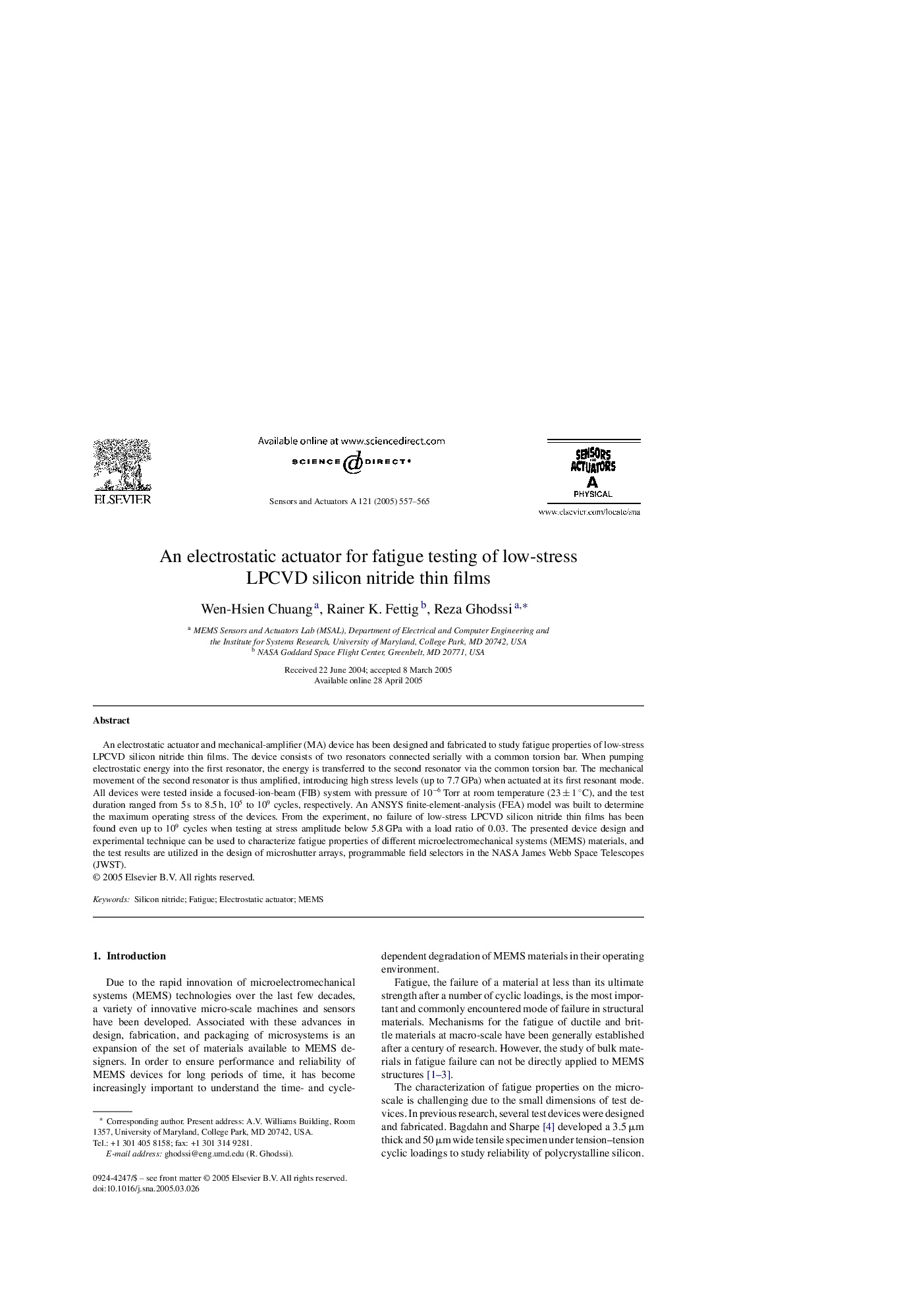| Article ID | Journal | Published Year | Pages | File Type |
|---|---|---|---|---|
| 10409623 | Sensors and Actuators A: Physical | 2005 | 9 Pages |
Abstract
An electrostatic actuator and mechanical-amplifier (MA) device has been designed and fabricated to study fatigue properties of low-stress LPCVD silicon nitride thin films. The device consists of two resonators connected serially with a common torsion bar. When pumping electrostatic energy into the first resonator, the energy is transferred to the second resonator via the common torsion bar. The mechanical movement of the second resonator is thus amplified, introducing high stress levels (up to 7.7 GPa) when actuated at its first resonant mode. All devices were tested inside a focused-ion-beam (FIB) system with pressure of 10â6 Torr at room temperature (23 ± 1 °C), and the test duration ranged from 5 s to 8.5 h, 105 to 109 cycles, respectively. An ANSYS finite-element-analysis (FEA) model was built to determine the maximum operating stress of the devices. From the experiment, no failure of low-stress LPCVD silicon nitride thin films has been found even up to 109 cycles when testing at stress amplitude below 5.8 GPa with a load ratio of 0.03. The presented device design and experimental technique can be used to characterize fatigue properties of different microelectromechanical systems (MEMS) materials, and the test results are utilized in the design of microshutter arrays, programmable field selectors in the NASA James Webb Space Telescopes (JWST).
Related Topics
Physical Sciences and Engineering
Chemistry
Electrochemistry
Authors
Wen-Hsien Chuang, Rainer K. Fettig, Reza Ghodssi,
